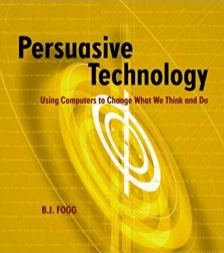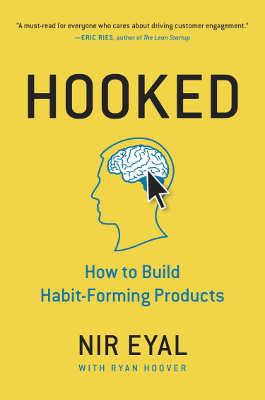84, Charing Cross Road by Helene Hanff. A re-read; originally read in 2001, this is one of my favorite books of all times. The copy I now have has a dedication by the author “To an unknown book lover”, which feels almost personal. Reading it during the Coronavirus quarantine, just as eggs were scarce around here for a few days, it felt eerie to read about the rationing in post-WWII Britain, and how thankful the store-workers were for a shipment of two eggs per family.
I’m definitely going to be looking for books by “Q”, and also for Newman’s The Idea of a University and Leonard’s The Book Lovers’ Anthology.
Abshalomy: Intertextual Readings in Hebrew Modern Literature by Shula Keshet. The title means “My Absaloms”, and it is a review of a selection of modern Hebrew literature and poetry, and its intertextual connections with the Bible and with other texts — starting with a series of works named after, or referring to, Absalom. I’ve read it as part of a general reading I’m doing regarding the works of Anton Shammas, but several other parts were well written and enjoyable (in particular, the chapters about Oz and Shalev).
Greek plays of the month: Oedipus at Colonus, Ajax, and Philoctetes by Sophocles; The Phoenician Women and The Suppliant Women by Euripides. All translated by Aharon Shabtai. These works are pure joy, with so much relevance to our own days — e.g., the discussion of forms of government and risks of despots in The Suppliant Women, given our failure to form a government for well over a year now; or the Machiavellian philosophy of Odysseus in Philoctetes.
Abaddon’s Gate (The Expanse, volume III) by James S. A. Corey. This is definitely not “the SF equivalent of A Song of Ice and Fire”, despite what the blurb on the back says: the characters are not nearly as deep, and the plot — despite the occasional curveball — is rather predictable. The entire plotline of Melba Koh/Clarissa Mao, for example, is entirely foreseeable (the only surprise being — spoiler alert — that she didn’t die at the end). And the theological argument over her soul, between Anna and Cortez, is ludicrous. But hey, it’s a just space opera, and a good one at that.
The Righteous Forsaken by Maya Arad, an Israeli version of Griboyedov’s “untranslatable” Woe from Wit. Arad is absolutely brilliant.
Persuasive Technology: Using Computers to Change What We Think and Do by B.J. Fogg. Introduction by Fogg’s PhD thesis advisor, Philip G. Zimbardo, who writes “Fogg is The credible communicator on this topic. His expertise soon will become evident to you, and I will vouch for his trustworthiness until you can establish it on your own”, and then he goes on to mention, on the same page, his own Stanford Prison Experiment. So much for credibility. To his credit, Zimbardo mentions in the introduction that knowledge of the field is important not only to create positive effects, but also to guard against negative ones: to ignore this will make us “slow to take necessary steps against unwanted persuasion by unethical agencies using this new technology for profit and political advantage.” (Also, it turns out Zimbardo was a high-school classmate of Stanley Milgram.)
I’ve read this book following the discussion of Fogg and his work in Zucked. McNamee presented Fogg as an evil genius who masterminded the techniques of computer persuasion. Doesn’t seem like that from the book... There are meaningful discussions of ethics throughout the book, and approaches that border on the unethical or can be used unethically are pointed out as such. But more importantly, the book is mostly a survey and taxonomy of what persuasive technologies already exist, backed up by research to verify their effectiveness. Fogg clearly didn’t invent much of the stuff he’s discussing (even the “Maybe later” response “dark pattern”, with no option to say “No”, predates his research, as shown in a screenshot from Eudora on p. 107); he just does a thorough job of cataloging it. For example, he notes that the computer can be viewed as (or serve as) a tool, a medium, or a social actor (and often, more role than one); and there are different persuasion approaches in each case. If anything, Fogg is very naive at times, such as when writing, “it’s not hard to imagine that future software for interactive TVs might be created to motivate people, especially school kids, to watch less TV” (emphasis mine).
The book is overly verbose and could have been made 70% shorter without losing a single bit of meaningful data. Not very insightful, not very informative, not very interesting.
Hooked: How to Build Habit-Forming Products by Nir Eyal with Ryan Hoover. If Fogg’s book is a naive survey of the field, Eyal’s book is a “how-to” guide for getting your users addicted (or, using Eyal’s euphemism, “hooked”) to your product, focusing on software products; how to put your products in the users’ “habit zone” not by creating a better product, but by planning it as more addictive. When discussing the morality of all this, Eyal presents the “Manipulation Matrix”; this is a 2X2 table contrasting two questions: does the product improve the user’s life, and does the maker use the product. Depending on the answers, the developer can be a peddler (improves, does not use), a facilitator (improves, uses), a dealer (does not improve, does not use), or an entertainer (does not improve, does use). Eyal presents an exception to the “does the developer use the product” question, in products for children, and here the metric he suggests is “if you would have been a user in your younger years”. I’m sorry, but the real question is, “would you let your children use it”. In the Prologue to his book Irresistible, Adam Alter notes that Steve Jobs would never let his kids use the iPad. Steve Jobs, the drug dealer.
New Reviews Notification |
To receive notifications as new reviews are published,
consider following the RSS feed. |
|






